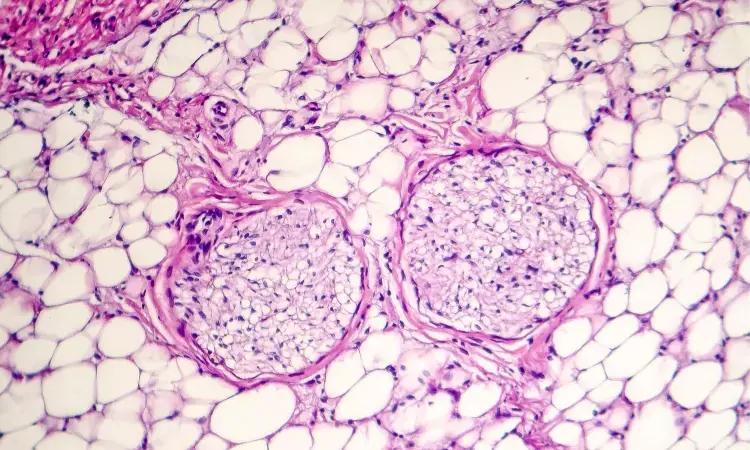Prophylactic Colchicine Therapy After Ablation In AF Fails To Reduce Incident Pericarditis
- byDoctor News Daily Team
- 02 July, 2025
- 0 Comments
- 0 Mins

A study published in JACC: Clinical Electrophysiology entitled "Prophylactic Colchicine After Radiofrequency Ablation of Atrial Fibrillation: The PAPERS Study" by a team of researchers has suggested that there is no benefit associated with postprocedural prophylactic colchicine therapy following atrial fibrillation or AF ablation. This study randomized 139 patients to either standard of care or colchicine treatment after radiofrequency ablation for AF to investigate the risks and benefits associated with the prophylactic use of colchicine to prevent Pericarditis (post-AF ablation). They found no significant difference in the incidence of post-ablation pericarditis between the treatment groups (10.6% vs 9.6%). They reported a higher rate of gastrointestinal discomfort in the colchicine group.
They concluded that Prophylactic colchicine therapy initiated after the ablation procedure in AF patients did not affect the incidence of post-ablation Pericarditis and is tied to an increased incidence of GI side effects.
It is already known that Pericarditis is common after radiofrequency ablation for atrial fibrillation. There needs to be more data on prevention strategies and, thus, significant heterogeneity in practice regarding colchicine use.
In this study, Study investigators hypothesized that an empirical post-AF ablation treatment protocol with colchicine may reduce pericarditis incidence and severity.
PAPERS (Post-Ablation PEricarditis Reduction Study) quantified the risks and benefits of prophylactic use of colchicine to prevent Pericarditis following AF ablation. They measured the primary endpoint as clinical pericarditis development within two weeks after ablation.
The critical points of this study are:
· There were two groups: A, the standard of care arm and B, the study arm.
· 66 Patients in group A received no postprocedure prophylaxis.
· 73 Patients in group B received colchicine 0.6 mg orally twice daily for seven days starting immediately after postprocedure (group B; study arm).
· All participants underwent a follow-up survey at 14 days postoperatively.
· The clinical Pericarditis in groups A and B was 7/66 and 7/73, constituting 10.6 % and 9.6%, respectively.
· The rate of gastrointestinal discomfort in groups A and B was 10/66 and 34/73, constituting 15 % and 47 %, respectively.
· Those who underwent cavotricuspid isthmus ablation had greater Pericarditis incidence in addition to pulmonary vein isolation (34 % and 8.7%, respectively).
They said that Prophylactic colchicine therapy initiated following the ablation procedure in AF patients did not affect post-ablation pericarditis incidence. They noted its association with an increased incidence of GI side effects.
Further reading:
https://www.sciencedirect.com/science/article/abs/pii/S2405500X23000920?via%3Dihub
Disclaimer: This website is designed for healthcare professionals and serves solely for informational purposes.
The content provided should not be interpreted as medical advice, diagnosis, treatment recommendations, prescriptions, or endorsements of specific medical practices. It is not a replacement for professional medical consultation or the expertise of a licensed healthcare provider.
Given the ever-evolving nature of medical science, we strive to keep our information accurate and up to date. However, we do not guarantee the completeness or accuracy of the content.
If you come across any inconsistencies, please reach out to us at
admin@doctornewsdaily.com.
We do not support or endorse medical opinions, treatments, or recommendations that contradict the advice of qualified healthcare professionals.
By using this website, you agree to our
Terms of Use,
Privacy Policy, and
Advertisement Policy.
For further details, please review our
Full Disclaimer.
Recent News
Chennai: Fortis Healthcare Opens 250-Bedded 2nd Mu...
- 06 July, 2025
New Lab-On-A-Chip, Cheaper, Faster, On The Spot Di...
- 06 July, 2025
Steroids And Plasma Exchange Do Not Alter Prognosi...
- 14 February, 2020
Daily Newsletter
Get all the top stories from Blogs to keep track.


0 Comments
Post a comment
No comments yet. Be the first to comment!